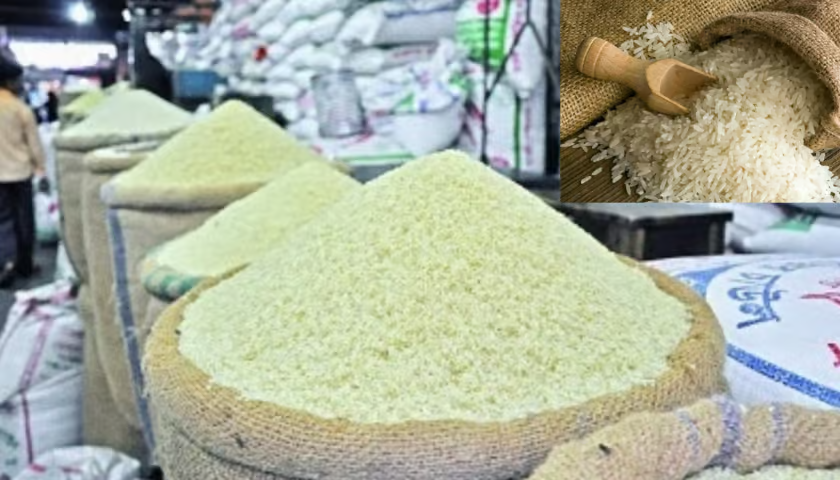Tags
Bangladesh faces increase in rice prices amid surplus supply: TCB
This inflationary trend comes despite a bumper Boro crop, the largest in Bangladesh‘s history.

BANGLADESH – Rice prices in Bangladesh have increased by up to 16% year-on-year, despite the country recording a bumper harvest this season and large import volumes during the recently ended 2024–25 fiscal year.
This sudden surge in prices has sparked major concerns among consumers and analysts, casting a shadow of doubt on the market’s reliability.
According to the Trading Corporation of Bangladesh (TCB), fine rice prices have jumped 15.94%, medium-quality rice by 16.07%, and coarse rice by 10.58% compared to last year.
Over the past two months, prices have steadily climbed, with rice now contributing 50% to overall food inflation in June, up from 40% in May, as noted in the ‘July 2025 Economic Update’ published by the General Economics Division (GED) of the Planning Commission.
This inflationary trend comes despite a bumper Boro crop, the largest in Bangladesh’s history.
According to data from the Department of Agricultural Extension (DAE), Farmers cultivated Boro paddy on 50.465 lakh hectares, targeting 226.002 lakh tonnes of rice. The harvest exceeded expectations by 15 lakh tonnes compared to the previous year.
Additionally, the country imported 13.05 lakh tonnes of rice in FY25, its second highest volume ever after the 97.74 lakh tonnes imported in FY18, according to the Ministry of Food records.
Still, consumers have yet to feel the impact of this surplus. Analysts attribute the disconnect to supply chain distortions and strategic stockpiling by rice traders and mill operators.
“Farmers no longer have paddy; most of it is now in the hands of rice mill owners and traders. They are speculating that if the market price goes up, they will profit. So, they are stockpiling and releasing rice slowly,” remarked Agricultural economist Dr Jahangir Alam Kha.
He warned that the government’s limited reserves are hampering its ability to stabilise the market.
“Currently, the government has around 1.4 million tonnes of paddy and rice combined in reserve. In contrast, traders hold over 10 million tonnes. That’s why they are manipulating the market,” he added.
Meanwhile, Retailers confirm the upward trend in prices. For instance, a 50kg sack of Mozammel brand miniket rice rose from Tk 3,700 to Tk 4,020 between June and July.
Other brands, such as Rashid Miniket, BR 28, and Paijam, also experienced price hikes of Tk 200 to Tk 300 per sack.
The General Economics Division (GED) of the Planning Commission attributes the price surge to multiple factors, including rising input costs such as fertilisers, seeds, irrigation, labour; post-harvest losses of 26%, and transportation expenses. These pressures, combined with speculative trading, have created a volatile market.
Despite government efforts to intervene, prices remain stubbornly high. Critics argue that regulatory oversight is lacking, and without more decisive intervention, traders will continue to dominate the pricing process.
As food inflation bites deeper into household budgets, particularly for low-income families, the disconnect between production and affordability raises urgent questions about market transparency and the effectiveness of policy.
https://millingmea.com/bangladesh-faces-increase-in-rice-prices-amid-surplus-supply-tcb/Published Date: July 29, 2025






